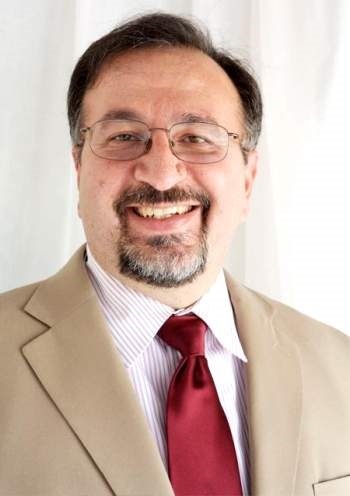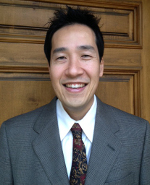What are the most important lesions learned while practicing in the gastroenterology field?
Ask a Gastroenterologist is a weekly series of questions posed to GI physicians around the country on business and clinical issues affecting the field of gastroenterology. We invite all gastroenterologists to submit response
Next week's question: What can gastroenterologists do to keep up meaningful use requirements?
Please submit responses to Carrie Pallardy at cpallardy@beckershealthcare.com by Thursday, November 13, at 5 p.m. CST.
 Eyal Meiri, MD, medical oncologist, Cancer Treatment Centers of America, Southeastern Regional Medical Center (Atlanta): The GI tract is a complex organ system and you really need to work with multiple disciplines. There are a lot of treatments and technologies available now that weren’t in the past – for example, cameras that can go in and image the bile duct. It’s really amazing what we can do. But it isn’t just the technology, it’s the people that make the difference.
Eyal Meiri, MD, medical oncologist, Cancer Treatment Centers of America, Southeastern Regional Medical Center (Atlanta): The GI tract is a complex organ system and you really need to work with multiple disciplines. There are a lot of treatments and technologies available now that weren’t in the past – for example, cameras that can go in and image the bile duct. It’s really amazing what we can do. But it isn’t just the technology, it’s the people that make the difference.
You have to have a vision, you have to build a team, and you approach it with some humility and courage. I’m still learning; I haven’t stopped learning. If you enjoy what you do and are a student of it for the rest of your life, you’re going to be happier and your patients are going to be happier.
Patrick Takahashi, MD, CMIO and Chief of Gastroenterology Section of St. Vincent Medical Center (Los Angeles): The most important lesson that I have learned while in the GI field is that preparation and the ability to adapt to change will help define one's success in the gastroenterology field. Hard work, in and of itself is no longer enough to sustain one's practice in the current medical and economic climate. The ability to not only conform to change, but to embrace it will prove critical to the long-term health of a practice. We are in the midst of a tremendous upheaval in the way that healthcare is provided and rationed to our patients. The increasing amount of pressure put on by regulatory and insurance agencies to help standardize care will need to be offset by efficiency both in an out of the workplace. For instance, the requirement for documentation has made EMRs a vital cog in the daily workflow of a gastroenterologist. This obviously comes with great cost, both monetarily and from an efficiency standpoint. The physician who adroitly navigates these types of workflow changes will be able to survive in this next phase of healthcare.
is that preparation and the ability to adapt to change will help define one's success in the gastroenterology field. Hard work, in and of itself is no longer enough to sustain one's practice in the current medical and economic climate. The ability to not only conform to change, but to embrace it will prove critical to the long-term health of a practice. We are in the midst of a tremendous upheaval in the way that healthcare is provided and rationed to our patients. The increasing amount of pressure put on by regulatory and insurance agencies to help standardize care will need to be offset by efficiency both in an out of the workplace. For instance, the requirement for documentation has made EMRs a vital cog in the daily workflow of a gastroenterologist. This obviously comes with great cost, both monetarily and from an efficiency standpoint. The physician who adroitly navigates these types of workflow changes will be able to survive in this next phase of healthcare.
Flexibility will likely be the most important trait that a gastroenterologist will need to maintain in the next decade or so going forward. It will take a collective effort by all members to paint as rosy a picture going forward. I think it is still possible to live the dream on a daily basis. It just takes a bit more work to make sure that the dream does not manifest itself into a nightmare.

